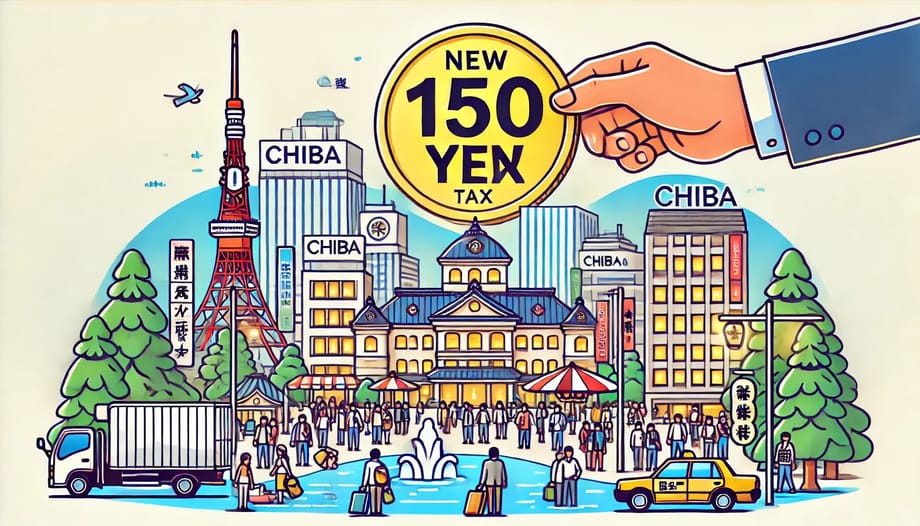This is an AI translated post.
Japan is considering introducing an accommodation tax as tourist numbers surge... Chiba Prefecture approves a 150 yen levy plan
- Writing language: Korean
- •
-
Base country: Japan
- •
- Travel
Select Language
Summarized by durumis AI
- The number of foreign tourists visiting Japan in the first half of 2024 exceeded the record high of the first half of 2019, reaching 17.77 million. As a result, local governments across Japan are considering introducing or increasing accommodation taxes.
- Chiba Prefecture has decided to introduce an accommodation tax and has tentatively approved a 150 yen levy per person, with the aim of securing funds for tourism promotion.
- Chiba Prefecture conducted surveys on accommodation businesses, municipalities, and travel agencies regarding the introduction of the accommodation tax, and the majority expressed support for its implementation.
The number of foreign tourists visiting Japan in the first half of 2024 (January-June) was recorded at 17,777,200. This figure surpasses the record high of the first half of 2019 by over 1 million people. The number of visitors in June was 3,135,600, an increase of 51.2% compared to the same month last year. Due to this surge in inbound demand, local governments across Japan are considering the introduction or increase of accommodation taxes.
Accommodation tax is a legally-defined tax that local governments can establish for specific purposes such as tourism promotion. It is levied based on the number of nights stayed per person. Nine local governments, including Tokyo, Osaka Prefecture, Kyoto City, Kanazawa City, and Fukuoka Prefecture, have already implemented accommodation taxes. More than 30 other local governments, including Hokkaido, Nisekocho in Hokkaido, and Atami City in Shizuoka Prefecture, have decided or are considering introducing accommodation taxes.

One such case is Chiba Prefecture, where Governor Toshi Kumagai started a study group on the introduction of accommodation taxes in October last year, stating that it was "unavoidable from a financial perspective." In July this year, the third expert meeting provisionally approved an accommodation tax of "uniform 150 yen".
Ritsuji Hito, Deputy Director of the Chiba Prefecture Tourism Policy Division, explained, "We anticipate requiring 4.5 billion yen as necessary funds to promote new tourism initiatives. Based on the number of overnight stays in the prefecture last year, which was approximately 28 million, with a burden of 150 yen per person, we expect tax revenue of approximately 4.2 billion yen, covering most of the target amount." He also added, "With the expansion of Narita Airport, inbound tourists will definitely increase, and we need to prepare for accommodating tourists in the Boso Peninsula with the extension of the Ken-o Expressway. This will be used as funding for the efforts of municipalities."
Chiba Prefecture conducted a survey targeting accommodation facilities, municipalities, and travel agencies alongside the introduction of the accommodation tax. The results showed that a majority, 56.3%, supported "collecting the tax from all overnight guests without exception." When asked about the "expected impact on Chiba Prefecture if it were to levy an accommodation tax of several hundred yen on tourists," 52.1% responded "no impact," while 11.3% responded "the number of travelers to Chiba Prefecture would decrease." Within Chiba Prefecture, Urayasu City and Minami-Boso City have also begun considering accommodation taxes, separate from the prefectural tax.
"If municipalities introduce accommodation taxes, it would be added to the prefectural tax of 150 yen, but close coordination with municipalities regarding the implementation timing is necessary," explained Deputy Director Ritsuji Hito. This could lead to differences in responses from individual municipalities. For instance, Fukuoka Prefecture, which introduced an accommodation tax of 200 yen in 2020, explained, "Kitakyushu City charges 200 yen, while Fukuoka City charges 200 yen for accommodations under 20,000 yen and 500 yen for accommodations above 20,000 yen. However, both cities are designated special wards, so they pay 50 yen of that amount to the prefecture," stated the Tax Section of the Fukuoka Prefecture General Affairs Department.
Local governments, including Tokyo, are also emerging that are considering raising accommodation taxes.



